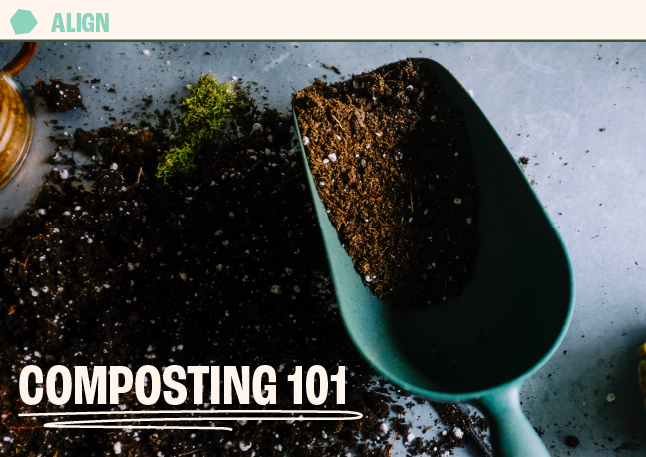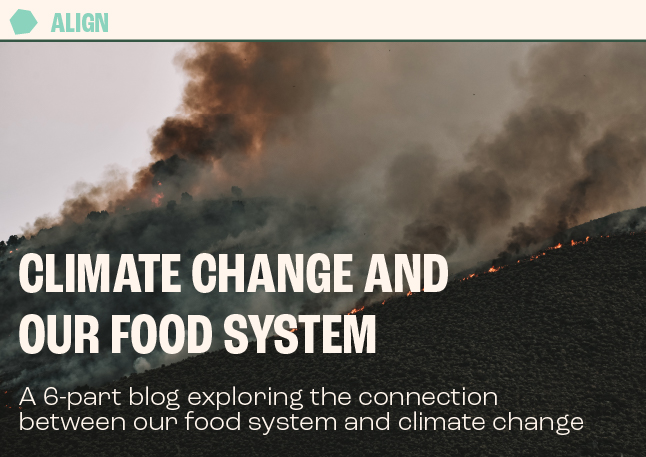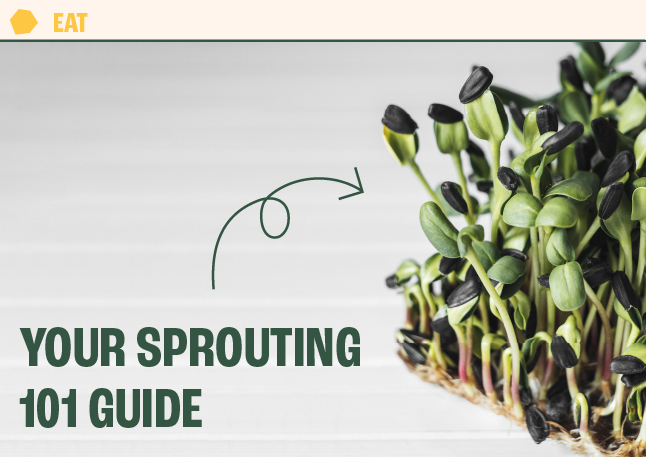As I wrote about in my book The Proof is in the Plants, food waste is a huge global concern. Not only are we wasting enormous amounts of energy in producing food for animals to eat (who will then yield considerably fewer calories themselves) but a great amount of the calories we do produce, end up wasted. The FAO estimates that around ⅓ of all food that is grown and produced is never consumed.
Around 60% of the food wasted in developed nations occurs during the consumption stage. This is food that each of us buy but don’t eat, that ends up going from a supermarket, to our home, and then finally into a landfill. This is problematic for a few reasons.
Firstly, food that is grown and produced but never consumed still requires precious resources such as energy, land, and water , while causing impacts to our environment and resulting in the emission of greenhouse gases that are very much threatening our future as a healthy species.
Secondly, when food waste is dumped in a landfill, due to the absence of oxygen it is unable to naturally biodegrade, and instead generates greenhouse gases, primarily in the form of methane, which further contribute to the warming of our planet. Producing excess calories that we don’t consume is bad enough. Sending it to landfill for it to generate even more emissions rubs salt into the wound.
As I write in detail in my book, the science is very clear that what we eat (more plants, less animals) is absolutely the biggest lever we can pull in terms of reducing our food related environmental footprint. However, once we have built that into our lifestyle, why stop there? Why not pay attention to how much we are buying, and where our food waste ends up too? Indeed, composting food scraps at home can be a great way of reducing our environmental footprint and diverting waste from landfills.
In this article, I will briefly take you through the principles of composting as well as a few tips and tricks to make it as seamless as possible.
Composting is a practice that allows for organic waste from food scraps to biologically decompose. Once decomposed, this nutrient-rich compost, often called ‘brown gold’ (it generally ends up looking just like regular garden soil) can be used as a natural fertilizer to enrich soils and plants.
Some councils across the world have already implemented large composting schemes to help divert food scraps from ending up in landfills. Most notably, the city of San Francisco set up a large-scale composting system already back in 1996, and has been successful in diverting over 80% of the city’s organic waste from landfills, saving money and reducing emissions. Unfortunately, other councils are yet to successfully implement such large-scale programs.
The good news, however, is that although it might seem daunting and complicated, composting at home is incredibly easy, inexpensive, and if you have a garden or houseplants, it’s also incredibly convenient to make your own fertilizer!
So, where to start?
1 – Choose the compost bin that is right for your needs: if you live in a tiny apartment, a worm bin might be the best option, but if you have a garden, a tumbler would probably work better. There are plenty of online resources to help you decide which compost bin might be right for you, but I personally like the simple guide that was put together by https://learn.eartheasy.com/guides/composting/. You might also look into the Bokashi composting system, which is incredibly easy, practical and stink-free.
2 – Once you have set up your system, it’s time to separate your organic food scraps from your household waste. Having a separate, often smaller, bin that you keep under your sink can be extremely useful here. In this bin, you want to be putting all of your organic waste, such as food and vegetable scraps, coffee grinds, old flowers, eggshells, and teabags. Pro tip: chopping your veggie and fruit scraps can help speed up the decomposition process! If you eat animal products, avoid adding meat, fish, bones or dairy, as these can attract pests and won’t break down easily.
It’s worth noting that although many products sold in supermarkets today such as paper towels or wipes are marketed as ‘biodegradable’ or ‘compostable’, these products require industrial facilities to break them down, and cannot be composted in home systems. If it doesn’t say ‘home compostable’ it’s best to err on the side of caution.
3 – Once you have transferred your food scraps to the compost bin of your choice, it’s time to be patient. Decomposition times will vary greatly between the different methods, but you can expect it to take around a couple of months before your food scraps turn into that nutrient-rich ‘brown gold’ that is ready to be used as a soil or plant fertilizer.
If the idea of having your own composting system still seems too daunting, or you feel like you might not have adequate space for it but you are still interested in reducing your waste footprint, then local composting services can be a great option. These services exist in most major cities and can easily be found online. If you live within the City of Sydney, the council is currently trialling a large-scale composting program and you can participate in it by registering your property or building on their website: https://www.cityofsydney.nsw.gov.au/waste-recycling-services/food-scraps-in-your-building. Many councils also have local community gardens fully set up with composting systems where you can bring all of your organic food scraps and they will be composted for you. If you live in Los Angeles, you can check out https://www.lacompost.org/.
Main Takeaway
If you know me at all, you’ll know that I am not one to preach perfection, whether that be in diet or lifestyle. The same obviously goes for composting. While it can definitely be a great initiative, I recognise that it might not be practical for everyone – and that’s totally fine! Regardless, reducing our personal food waste by shopping mindfully and avoiding takeout food when we have a fully stocked fridge can drastically help reduce the amount of food that ends up in a landfill.
Finally, it’s also important to keep in mind that what type of food we are buying matters most in terms of the impact of our diet on the planet’s health and greenhouse gas emissions (more plants, less animals) regardless of whether you are composting or not.
Some great resources to learn more about home composting as well as government initiatives that have been successful at reducing food waste:
- https://ecommons.cornell.edu/bitstream/handle/1813/29111/compostingathome.pdf?sequence=2&isAllowed=y
- https://www.oregon.gov/deq/FilterDocs/UsersGuideCompost.pdf
- https://www.planetnatural.com/composting-101/
- https://re-thinkgreen.com/2016/09/07/15-cities-that-compost-for-you/
- https://www.scandinaviastandard.com/the-best-ways-to-reduce-food-waste-in-denmark/







